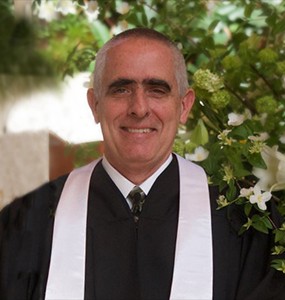No person’s health care outcome should ever be determined by their financial income.
That is the sort of clear moral truth concerning which people who are Jews, Hindus, Muslims, Sikhs, Buddhists and Christians, along with people of no faith but good faith, can agree.
And, at this moment in our nation’s history, the most clear path to health care access and equity is to expand Medicaid; closing the health care coverage gap for the nearly 2 million people in our nation who make too much to qualify for Medicaid and too little to afford private insurance; their health care outcomes too often determined by their financial incomes.

Chuck Poole
Forty of our nation’s 50 states have done what they could to close the coverage gap by fully expanding Medicaid; 10 have not. Those 10 states are Alabama, Georgia, Florida, Kansas, Mississippi, South Carolina, Tennessee, Texas, Wisconsin and Wyoming.
These have forgone the enormous influx of federal dollars that would support Medicaid expansion for hundreds of thousands of their citizens; federal money that would help save rural hospitals, create new jobs in the health care sector and, most importantly, address the social injustice of health care outcomes based on financial incomes.
One of the sticking points for some of the nonexpansion states is the insistence on a work requirement. There may be many reasons for that insistence, some of which are, no doubt, sincere and genuine, but one of which, one imagines, is the fear of some lawmakers of being accused in their next run for office as being “liberal” if they don’t insist on strict work requirements for those who would be covered under Medicaid expansion.
“In most of the 10 non-expansion states, ‘sounding conservative’ is the best way to survive being primaried in the next election.”
The phrase “work requirement” sounds conservative and, in most of the 10 nonexpansion states, “sounding conservative” is the best way to survive being primaried in the next election by someone who might try to use a policymaker’s support of Medicaid expansion without a work requirement as evidence of an abandonment of traditional values such as “the virtue of work.”
All of which has resulted in some nonexpansion states taking a long look at closing the health care coverage gap, only to bog down over work requirement proposals that would leave the state ineligible for the federal grants that make Medicaid expansion affordable for the state.
Watching those work requirement conversations stall Medicaid expansion in some of the nonexpansion states has caused me to think much about a generationally important story from my own family.
My late grandfather, Eugene Poole, was a dear soul of many musical gifts but also a man who was known in Depression-era Kite, Ga., as someone who rarely held a job and never for long.
It wasn’t that Daddy Gene, as we called him, could not work but, rather, that he would not work; an “able bodied man”as we sometimes hear it said, with a wife and five children who, for reasons no one will ever know, just would not work — requiring my dad to quit school at 13 years of age to do the sharecropping so the family could survive. (A story so large in the life of our family that whenever anyone needs an excuse for their behavior, we just chalk it up to “the Gene Poole gene pool.”)
My late father once told me about one time when some folk from the church down the road brought them a bag of groceries for Christmas. My dad said that, even as a kid, he could sense their unhappiness about “having to help the Pooles,” since everyone in that tiny rural community knew that Daddy Gene could work if only he would.
“Everyone in that tiny rural community knew that Daddy Gene could work if only he would work.”
Needless to say, the kind folk from the country church could have invoked 2 Thessalonians 3:10 to leave the Gene Poole family off the list for assistance. After all, 2 Thessalonians 3:10 does say, “Those who will not work shall not eat.”
But, apparently they went instead with Jesus, specifically Matthew 7:12, where Jesus is reported to have said, “Do unto others as you would have them do unto you.” (As always, the more conservative we become about Jesus, the more liberal we become toward those who are living in poverty.)
I always have been glad there were people in rural Johnson County, Ga., who were more concerned about the well-being of my dad’s family than they were frustrated by my grandfather’s work history.
There may be some people in the health care coverage gap who, like Daddy Gene, don’t work because they won’t work, but in my efforts in Alabama for health care justice with Together for Hope, I have not met anyone who has chosen not to work. I have, however, heard many stories from and about people living in the health care coverage gap, all of whom either are working, or are trying to; each of whom would be better able to remain in the workforce if they had access to basic health care.
But even if there are some folk in the health care coverage gap whose work history does not align with our middle class North American traditional values, we don’t want their families to suffer. Like the good folk in Johnson County, Ga., who helped my family, work history notwithstanding, we care more deeply than that.
And when the lights are off and the house is quiet, when there is no position to defend or election to win, we know at the center of our soul that, like basic nutrition, adequate shelter, clean water and public education, access to health care is a basic and fundamental human right.
Putting an insurance card in the pocket of every person is not a magic wand that will solve all health care access problems and eliminate all social determinants of health, but it is the most clear step in the right direction available to us. So we should take it.
This, of course, is the summer season, when no state legislatures are in session. But when the legislatures reconvene in our nation’s 10 nonexpansion states, the governors and legislative leaders in those states need to have Medicaid expansion on their legislative calendars as their day one No. 1 legislative priority — not as a politically red or blue thing, but as a morally right and true thing.
Because we all know that, in the most prosperous and generous nation on earth, no person’s health care outcome should ever be decided by their financial income.
Chuck Poole retired in 2022 after 45 years of pastoral life, during which he served churches in Georgia; North Carolina; Washington, D.C.; and Jackson, Miss. He has served as a visiting preacher and teacher on the campuses of multiple universities, seminaries and divinity schools. He was the founding teacher of the Wood Street Bible Class in Jackson, which he led for 21 years. The author of nine books, numerous published articles, one gospel song and the lyrics to three hymns, Chuck has served as a “minister on the street” and as an advocate for interfaith conversation and welcome. He and his wife, Marcia, now live in Birmingham, where he serves on the staff of Together for Hope.


